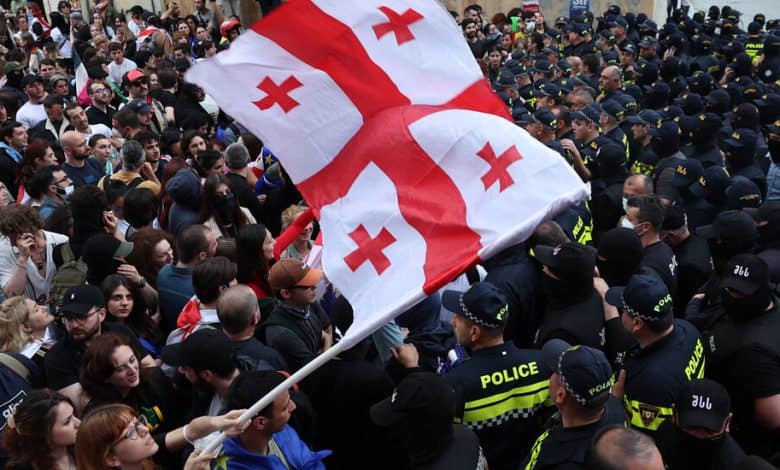Divisions Set to Deepen in Georgia After Foreign Influence Law Passes

The moment the Parliament of Georgia put its final seal of approval Tuesday night on a contentious law aimed at keeping closer tabs on organizations funded from abroad, protesters surrounding the building erupted with screams, boos, and whistles.
Many were stunned, and some were in tears, fearing that the law could change the trajectory of their country for years to come, aligning it more with Russia than with the European Union they want to join.
“It is a new chapter in our life,” said Tamar Kintsurashvili, 54, who runs a nongovernmental organization that aids media organizations in Georgia, referring to what protesters have called the “Russian law,” saying it resembles one the Kremlin adopted to rein in its critics. “We know Russian experience. We know how they are operating.”
For weeks, the square and streets around the imposing Parliament building in Tbilisi have seethed with nightly protests, as thousands of mainly young residents of the capital who see Georgia’s future as aligned with the West — and the democratic freedoms they associate with that — decry what they see as the country’s slide into Russia’s orbit.
“We don’t want to become a second Belarus — or Russia,” said Konstantine Chakhunashvili, 32, a pediatrician and a member of the Geut protest group. Members of the group have been demonstrating in front of the Parliament every day over the past two years, but those protests have intensified — growing to include other groups and individuals — after the government introduced the foreign influence bill in April.
On Tuesday night, President Salome Zourabichvili, who has supported the protests but whose veto of the bill this month could not prevent its passage, called on protesters to press for a referendum on whether Georgia should be aligned with Europe or Russia. The president, whose duties are mainly ceremonial, also called on the country’s divided opposition parties to join forces to unseat the ruling Georgian Dream party at parliamentary elections in October.
